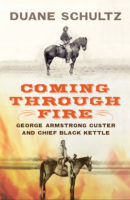George Armstrong Custer
Palgrave Macmillan, 2010
Colorful, charismatic, and controversial, George Armstrong Custer became a national hero at the age of 23 when he was promoted to the rank of general, barely two years after graduating from the military academy at West Point at the bottom of his class, and surviving a court martial. Dubbed the “Boy General” by the press, Custer was the youngest man to attain that rank in the Civil War. The public idolized him and his men worshipped him because he never asked them to do anything he did not do himself. When he ordered a charge, he was always out in front. Even today, well over a century after his death, Custer remains a romantic hero. He endured a second court martial and temporary dismissal from the Army, redeemed himself through his actions at the front, and resurrected his former glory with a stunning victory over the Cheyenne Indians using tactics he had perfected during the Civil War.
Custer’s life seemed to satisfy a need, both then and now, for larger-than-life figures, those flamboyant, daring, and dashing individuals who vigorously defy conventional standards and become symbols of invincibility, incapable of doing anything wrong. He came to believe this himself, which ultimately was his undoing, a characteristic not uncommon to leaders in every age. There is a timelessness and universality to Custer’s downfall, bred from the very characteristics that led to his glory and fame.
When the news was received about the massacre of Custer and his command at the Little Big Horn, bells tolled in every city and town, the press rushed to judgment to place blame, and Americans went into mourning over the loss of their Boy General. Early in life, Custer had declared that he wanted fame more than anything else. He achieved his goal.
Reviews
Custer is a swiftly paced and compelling biography of the “Boy General” of the Civil War and the cavalry officer who led his men at Little Big Horn. George Armstrong Custer was a fascinating American, a man of towering inconsistencies, who Schultz captures well in this finely written book.
This compact biography of George Armstrong Custer is deftly written and offers a well-reasoned and balanced interpretation of its subject. Schultz’s research is an impressive blend of primary and secondary sources. Custer fills a gap between those minutely detailed biographies that glorify and sometimes mythologize the man, and those skim-the-surface studies that undervalue Custer’s achievements to the Civil War and Indian fighting armies.
The golden-haired George Armstrong Custer—the boy general who led his troops to be massacred by the Indians—is perhaps the most famous story to emerge from the American frontier. Yet the leadership lessons of his life have a timeless quality which extends far beyond the tragedy of his death. No one has yet told the story quite so well as Duane Schultz in this compelling, fast-moving biography.
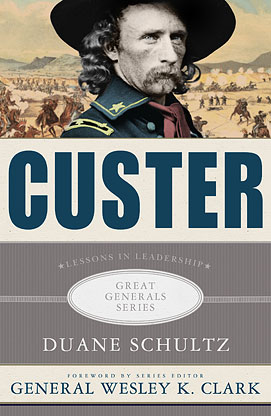
More Civil War Books by Duane Schultz
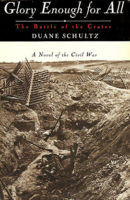
Glory Enough for All: The Battle of the Crater: A Novel of the Civil War
St. Martin’s Press, 1993
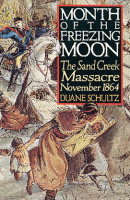
Month of the Freezing Moon: The Sand Creek Massacre, November 1864
St. Martin’s Press, 1990
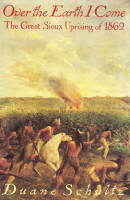
Over the Earth I Come: The Great Sioux Uprising of 1862
St. Martin’s Press, 1992
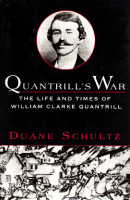
Quantrill’s War: The Life and Times of William Clarke Quantrill, 1837-1865
St. Martin’s Press, 1996
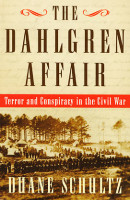
The Dahlgren Affair: Terror and Conspiracy in the Civil War
W. W. Norton, 1998
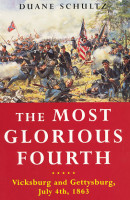
The Most Glorious Fourth: Vicksburg and Gettysburg, July 4th, 1863
W. W. Norton, 2002
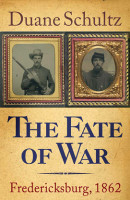
The Fate of War: Fredericksburg, 1862
Westholme Publishing
